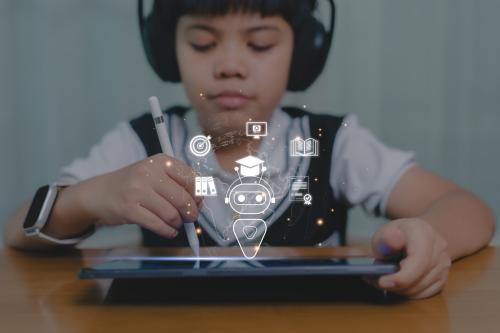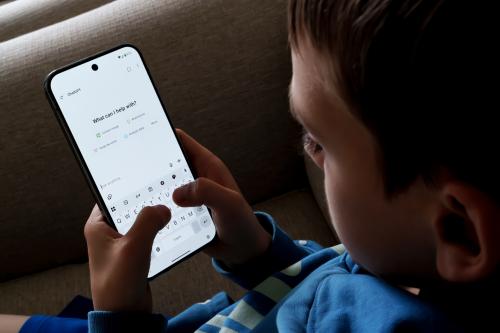Executive Summary
In 1915, famed educator John Dewey wrote a book entitled Schools of Tomorrow in which he complained that the conventional public school “is arranged to make things easy for the teacher who wishes quick and tangible results.”[i] Rather than fostering personal growth, he argued that “the ordinary school impressed the little one into a narrow area, into a melancholy silence, into a forced attitude of mind and body.”[ii]
In criticizing the academies of his day, Dewey made the case that education needed to adopt new instructional approaches based on future societal needs. He claimed that 20th century schools should reorganize their curricula, emphasize freedom and individuality, and respond to changing employment requirements. Failure to do so would be detrimental to young people. In one of his most widely-quoted commentaries, Dewey predicted that “if we teach today’s students as we taught yesterday’s, we rob them of tomorrow.”[iii]
Writing nearly a century ago, it would have been inconceivable for him to envision the current world of electronic resources, digital textbooks, instructional games, interactive blogs, and social media. Yet his basic message remains highly relevant today. If schools don’t re-invent themselves to engage students and train them for needed areas, it will be difficult for the United States to compete in the global economy.
Imagine schools where students master vital skills and critical thinking in a personalized and collaborative manner, teachers assess pupils in real-time, and social media and digital libraries connect learners to a wide range of informational resources. Teachers take on the role of coaches, students learn at their own pace, technology tracks student progress, and schools are judged based on the outcomes they produce. Rather than be limited to six hours a day for half the year, this kind of education moves toward 24/7 engagement and learning fulltime.
In this paper, I examine new models of instruction made possible by digital technologies. Pilot projects from across the country are experimenting with different organizations and delivery systems, and transforming the manner in which formal education takes place. By itself, technology will not remake education. Meaningful change requires alterations in technology, organizational structure, instructional approach, and educational assessment.[iv] But if officials combine innovations in technology, organization, operations, and culture, they can overcome current barriers, produce better results, and reimagine the manner in which schools function.[v]
[i] John Dewey, Schools of Tomorrow, New York: Dutton, 1915, p. 18.
[ii] John Dewey, Schools of Tomorrow, New York: Dutton, 1915, p. 20.
[iii] John Dewey, Democracy and Education, New York: Macmillan Company, 1944, p. 167.
[iv] Darrell West, The Next Wave: Using Digital Technology to Further Social and Political Innovation, Washington, D. C.: Brookings Institution Press, 2011.
[v] Darrell M. West, Digital Schools: How Technology Can Transform Education, Washington, D.C.: Brookings Institution Press, forthcoming, 2012.
The Brookings Institution is committed to quality, independence, and impact.
We are supported by a diverse array of funders. In line with our values and policies, each Brookings publication represents the sole views of its author(s).




